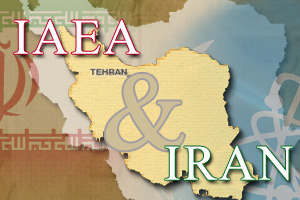Don’t Expect Too Much of IAEA
Essentially preferential, the UN watchdog prioritizes global powers’ interests over law. By Bijan Koushki, foreign affairs expert

A few days before IAEA Board of Governor sitting, Iranian Supreme Leader Ayatollah Ali Khamenei criticized the UN watchdog over its treatment of Iran’s nuclear program. IAEA lacks independence according to Ayatollah Khamenei and “"The IAEA should not be influenced by the U.S. and some (other) countries because unilateral acts erode trust in the agency and the United Nations. It is also very bad for the prestige and reputation of these international bodies.” (AP).
Bijan Koushki, foreign affairs expert believes that:
With a closer look at International Atomic Energy Organization, it becomes clear that pure legal and technical focus on nuclear cases is impossible. In fact, just like its big brother the UN Security Council, IAEA has a preferential structure. That is why since its establishment in 1957, the IAEA has failed to fulfill its cardinal mission, that is, nuclear disarmament. No surprise that should be since the key actors in IAEA and its Board of Governors are those countries that are the biggest producer and possessors of nuclear weapons.
An international organization with such a structure is incapable of meeting its duties. What can a system based on inherent structural discrimination, its core, i.e. Board of Governors, dominated by a number of powerful nuclear states do about nuclear disarmament and even promotion of peaceful nuclear energy use? This structure will not allow for legally- and technically-based measures, even by independent figures.
We would be quite unrealistic if we asked IAEA to study our dossier with a 100 percent technical and legal attitude. The UN watchdog is neither capable nor willing to follow this line. IAEA’s behavior has proved that in decision-making, global powers’ interests are prioritized and independent measures have always been forestalled. Sporadic pro-Iran decisions and remarks by this organization have been and will definitely be neutralized later with tough decisions that serve the interests of world powers.
Ayatollah Khamenei’s reprehension is just to make the global public opinion aware of the nature of this organization and to dispel any illusions about its impartiality. But IAEA will keep moving in the wrong path, overlooking legal and technical issues in favor of powerful countries’ demands.
Bijan Koushki, foreign affairs expert believes that:
With a closer look at International Atomic Energy Organization, it becomes clear that pure legal and technical focus on nuclear cases is impossible. In fact, just like its big brother the UN Security Council, IAEA has a preferential structure. That is why since its establishment in 1957, the IAEA has failed to fulfill its cardinal mission, that is, nuclear disarmament. No surprise that should be since the key actors in IAEA and its Board of Governors are those countries that are the biggest producer and possessors of nuclear weapons.
An international organization with such a structure is incapable of meeting its duties. What can a system based on inherent structural discrimination, its core, i.e. Board of Governors, dominated by a number of powerful nuclear states do about nuclear disarmament and even promotion of peaceful nuclear energy use? This structure will not allow for legally- and technically-based measures, even by independent figures.
We would be quite unrealistic if we asked IAEA to study our dossier with a 100 percent technical and legal attitude. The UN watchdog is neither capable nor willing to follow this line. IAEA’s behavior has proved that in decision-making, global powers’ interests are prioritized and independent measures have always been forestalled. Sporadic pro-Iran decisions and remarks by this organization have been and will definitely be neutralized later with tough decisions that serve the interests of world powers.
Ayatollah Khamenei’s reprehension is just to make the global public opinion aware of the nature of this organization and to dispel any illusions about its impartiality. But IAEA will keep moving in the wrong path, overlooking legal and technical issues in favor of powerful countries’ demands.

